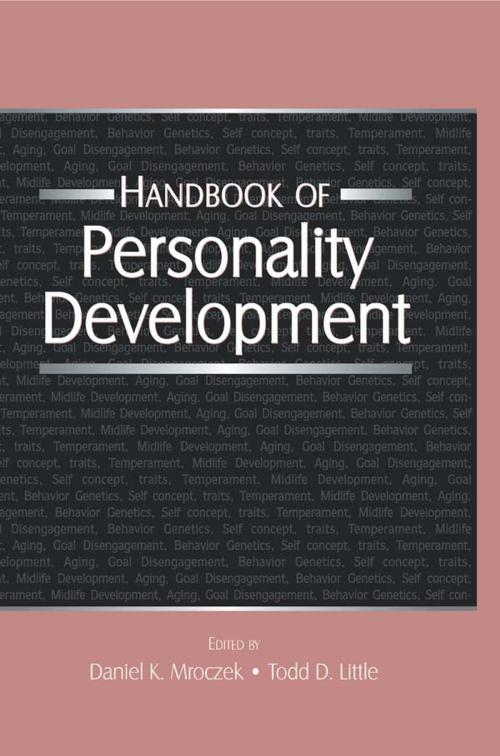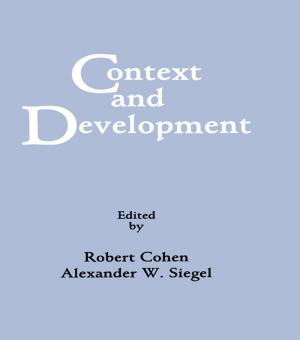| Author: | ISBN: | 9781317778066 | |
| Publisher: | Taylor and Francis | Publication: | February 25, 2014 |
| Imprint: | Psychology Press | Language: | English |
| Author: | |
| ISBN: | 9781317778066 |
| Publisher: | Taylor and Francis |
| Publication: | February 25, 2014 |
| Imprint: | Psychology Press |
| Language: | English |
This handbook is the first volume to provide a comprehensive look at personality development. It features a state-of-the-art examination of the field, an area that is enjoying a resurgence in popularity. Five major types of advances, all of which are represented in this volume, are the result of the recent burst in research activity in this area: 1) new theoretical perspectives, 2) higher-quality empirical studies, 3) more sophisticated research designs and analyses, 4) attention to development across the lifespan, and 5) the growing prominence of interdisciplinary approaches to personality development.
The Handbook of Personality Development is comprehensive across the lifespan, in its range of personality constructs, and in its coverage of theoretical and methodological frameworks. It is the first volume to address the most important personality development theoretical frameworks in one location--the evolutionary, physiological, behavioral genetic, and socio-cultural perspectives. The book also reviews new statistical techniques that allow for the estimation of individual differences in stability and the analysis of change. The latter part of the book focuses on personality development over the lifespan, from infancy to older adulthood. The authors address personality variables such as emotion regulation, temperament, and self-concept across the lifespan. The book concludes with a compelling capstone chapter by Dan McAdams on how personality develops. The Handbook of Personality Development provides an historical account of, and summary of, the most significant and important findings in the area, along with suggestions for future research.
Intended for researchers and advanced students in personality, developmental, social, clinical, and educational psychology, as well as related fields such as family studies, sociology, education, nursing, behavioral genetics, neuropsychology, and psychophysiology, the handbook also serves as a valuable resource in advanced courses that address personality development.
This handbook is the first volume to provide a comprehensive look at personality development. It features a state-of-the-art examination of the field, an area that is enjoying a resurgence in popularity. Five major types of advances, all of which are represented in this volume, are the result of the recent burst in research activity in this area: 1) new theoretical perspectives, 2) higher-quality empirical studies, 3) more sophisticated research designs and analyses, 4) attention to development across the lifespan, and 5) the growing prominence of interdisciplinary approaches to personality development.
The Handbook of Personality Development is comprehensive across the lifespan, in its range of personality constructs, and in its coverage of theoretical and methodological frameworks. It is the first volume to address the most important personality development theoretical frameworks in one location--the evolutionary, physiological, behavioral genetic, and socio-cultural perspectives. The book also reviews new statistical techniques that allow for the estimation of individual differences in stability and the analysis of change. The latter part of the book focuses on personality development over the lifespan, from infancy to older adulthood. The authors address personality variables such as emotion regulation, temperament, and self-concept across the lifespan. The book concludes with a compelling capstone chapter by Dan McAdams on how personality develops. The Handbook of Personality Development provides an historical account of, and summary of, the most significant and important findings in the area, along with suggestions for future research.
Intended for researchers and advanced students in personality, developmental, social, clinical, and educational psychology, as well as related fields such as family studies, sociology, education, nursing, behavioral genetics, neuropsychology, and psychophysiology, the handbook also serves as a valuable resource in advanced courses that address personality development.















